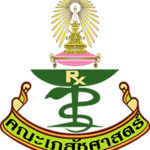Are Anti-Anxiety Drugs the Final Solution?

Understanding Medication with Chula Pharmacists: Are Anti-Anxiety Drugs the Final Solution?
In today’s fast-changing world, life may be more convenient than ever—but for many, it's also more stressful. While technology and modern systems aim to make things easier, people increasingly report feeling overwhelmed. Social, economic, and political uncertainties, as well as natural disasters and personal struggles, all contribute to rising stress levels.
Stress can affect anyone. When left unmanaged, it can seriously impact both mental and physical health.
What Is Stress, Medically Speaking?
In medical terms, stress is the body's response to external or internal pressures that feel threatening or unmanageable. This triggers a series of physical, psychological, and behavioral changes—often involving hormones like cortisol and adrenaline. These hormones influence the nervous system, heart, and immune system.
Common symptoms of stress include:
- Rapid heartbeat
- High blood pressure
- Muscle tension
- Sleep problems
- Changes in appetite
- Irritability, anxiety, or even depression
The World Health Organization (WHO) identifies stress as one of the most significant health concerns today. If stress becomes chronic—lasting more than three months—it may increase the risk of serious conditions such as heart disease, diabetes, high blood pressure, anxiety, and depression.
Stress Management Without Medication
Before turning to medication, there are several evidence-based strategies that can help relieve stress:
1.Get Enough Sleep – Aim for 6–8 hours each night. Being well-rested makes it easier to handle stress.
2.Plan and Manage Your Time – Organizing your responsibilities can make problems feel more manageable.
3.Practice Meditation or Mindfulness – Focusing on your breathing and staying present can calm your mind.
4.Exercise Regularly – Physical activity releases endorphins, the body's natural stress relievers.
5.Talk to Someone You Trust – Sharing your feelings with a supportive person can be a big relief. Just make sure it's someone who truly listens.
When to Consider Medication
If these methods don't work, and stress continues to interfere with daily life, medical intervention may be necessary. Anti-anxiety medications are sometimes prescribed in the following cases:
- Severe anxiety that disrupts work or social life
- Physical symptoms of stress with no clear medical cause (e.g., headaches, palpitations, stomach issues)
- Chronic insomnia caused by stress, especially if it lasts over 2–3 weeks
Doctors may prescribe medication when they determine it's essential for a patient’s well-being. These drugs usually work by calming the nervous system and must be taken exactly as prescribed. Self-medicating, adjusting doses, or stopping the medication without medical supervision is dangerous.
Final Thoughts
Stress is a normal part of life, and many people can manage it on their own. But if it becomes overwhelming, medication may be a helpful last resort—only under the supervision of a qualified doctor or pharmacist.
Most importantly, avoid using harmful substances like cigarettes, alcohol, or recreational drugs as a way to cope. These may worsen your condition in the long run.
Taking care of your mental health is just as important as caring for your physical health. Help is available—and it starts with understanding your options.
Assoc. Prof. Dr. Nattada Areepiam and Assoc. Prof. Dr. Bodin Tiwasuwan
Faculty of Pharmacy Chulalongkorn University
เราใช้คุกกี้เพื่อพัฒนาประสบการณ์การใช้งานเว็บไซต์ของคุณให้ดียิ่งขึ้น คุณสามารถจัดการความเป็นส่วนตัวของคุณได้เองโดยคลิกที่ ตั้งค่า
